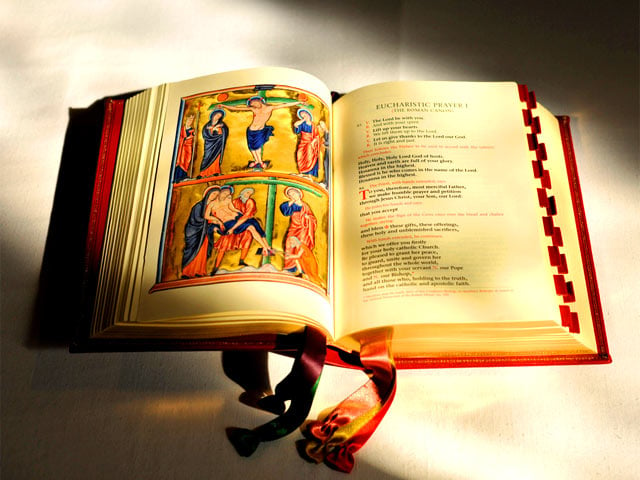- Home
- Our Community
- Our Faith
- Our Ministries
-
Parish Life
- Calendar of Events
- St. Aidan's Video Links
- Parish Blog
- News Archive
- Mass Etiquette and Information
- Ad Orientem News and Facts
- Catholic Links
- Prayers and Announcements
- Luis Dizon Reflections - Archive
- Bulletin
- Contact Us
- Search

The Faith of Naaman (28th Sunday of Ordinary Time)
Click here for the Sunday Readings
In 2 Kings 5:1-13, Naaman the Syrian is informed by the prophet Elisha that his leprosy can only be cured by bathing in the Jordan river. Although he initially scoffs at the idea, his servants convince him to heed the word of the prophet. We see in our reading that he does as Elisha tells him, and it results in his healing.
Here, we learn two things: First, that God’s grace is available to everyone. Even in the Old Testament, we see many instances of God’s grace towards non-Israelites. Jesus notes this when he alludes to Naaman’s story in Luke 4:28. This also connects the story to our Gospel reading, where Jesus makes a similar healing for a Samaritan, who is the only one to express thanks for such a healing (Luke 17:11-19). As St. Paul notes, God desires all men to be saved and to come to a know the truth (1 Timothy 2:4).
The second lesson is that although God’s grace is available to everyone, that entails worshipping the one true God alone. The nations are called to abandon their false religions and embrace the worship of Yahweh. We see Naaman respond to this call in verse 17. Although scripture does not explicitly say that Elisha told him to abandon idol worship, we may reasonably infer that he proclaimed to him the superiority of the one true God over idols. The fact that only the Jordan river (as opposed to any other river) will heal him attests to the supremacy of the God of Israel.
To reinforce this theme, Naaman even asks for forgiveness for assisting in the idolatry of his master. Although he cannot prevent his master from doing so, he recognizes that it is unlawful to be complicit in it:
In this matter may the LORD pardon your servant: when my master goes into the house of Rimmon to worship there, leaning on my arm, and I bow myself in the house of Rimmon, when I bow myself in the house of Rimmon, the LORD pardon your servant in this matter.” He said to him, “Go in peace.” (2 Kings 5:18-19a)
In keeping with these lessons, we should proclaim God’s grace to everyone regardless of race or social class. But we should also call upon them to abandon false worship and be part of the one true faith. Only those who worship in Spirit and truth can rightfully please God, as Jesus affirms (John 4:23-24).
J. Luis Dizon
